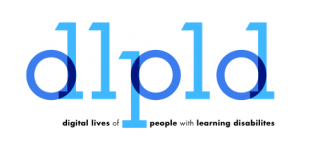
A British Academy-funded Post-doctoral study
Introduction
This is the web site of a major research project being undertaken by Pete Williams at University College London , exploring how people with Learning Disabilities (LD) are using Digital Technology (DT) (mobile devices, computers etc.) in their everyday lives.
Its aims are to explore:
- The benefits, in terms of entertainment, self-expression and possible greater autonomy; and the barriers, such as usability issues, privacy or vulnerability concerns etc.
- How the technology, and in particular the software/apps and interfaces, can be improved to enable the greater access to the benefits it offers.
It is also hoped that results will inform parents, carers and other supporters regarding how they can use the technology with people with LD.
There is a very strong involvement by people with LD themselves. In addition to recounting their experiences, they are helping to co-produce an accessible, annotated and hyperlinked ‘living’ electronic archive of their ‘digital lives’. This is for both themselves and their supporters, and also for professionals and academics, to give them a better insight into this important topic.
By its end (2019) the project will have worked with approximately 80 adults of all ages who have low literacy levels, recruited from Functional Skills units in Further Education Colleges; Day Centres and other locations where people with LD work, study or socialise. Involving people with LD in the development of the archive, as collaborators rather than ‘research subjects’, is promoting inclusion and offering the participants an interesting and valuable experience.
Data gathering
Two main methods are being adopted to gather data. These are:
- Focus group and activity sessions, in which participants tell each other about their experiences, difficulties etc. Some may ‘tell a story’, around such themes as ‘my digital friends’, ‘how my phone helps me’ etc
- Informal individual interviews, where participants expand and clarify comments they may have made in the group session, on their use, how they learned, what they find difficult etc. – maybe using their device to illustrate their points. Those wishing to create their own archive page make their entries during these sessions, either dictating or typing themselves, directly on to the system. they can also upload a photo to illustrate their contributions.
Usability is being explored by participants navigating their devices, accessing music etc. Social media users show their Facebook pages, Pinterest uploads or other material if they wish – giving them an additional focus for discussion;
Supporters are being interviewed to explore their experiences of using Digital Technology with the people they support, and are also able to comment on and annotate (with permission by the producers) pages produced by the participants themselves. Finally, a number of academics in the field will also describe how they could use the archive in their LD research.
Archive construction
Participants are invited to upload the information they offer in interviews, either by typing into a text box or dictating to the researcher or supporter. The template provides a simple choose and click operation for image upload. Participant will be able, as the project continues, to build multimedia pages (i.e. on such topics as ‘My first mobile phone’). Additional interviews, for those who wish, will generate more material. Hyperlinks are being made between participants who have common interests, experiences etc. in the form of tags. A site-specific search facility is provided, so people can search on topics, devices or other aspects of the ‘digital lives’ articulated in the archive.
Generously funded by the British Academy
© Peter Williams 2017
 Close
Close

